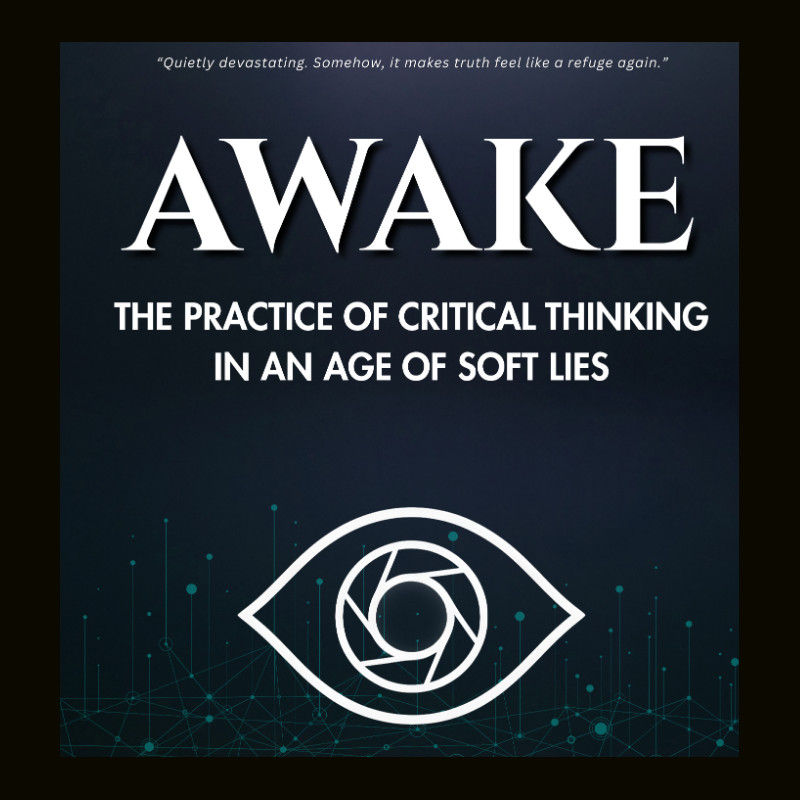There's A Lot Of "End of the World" talk going around on social media. Does R.E.M. have it right?
- Terry Wigmore
- Jan 19, 2024
- 4 min read
Updated: Jan 31, 2024
There is so much noise on social media about the end of the world. Paying attention to some, or all of it can be the cause of great fear and dread. How much heed should we pay to this trend line and what is a reasonable response to those who make claims such as, "It's never been this bad in the world before," or "Only in this generation can all the biblical prophecies be fulfilled"?
A lot has happened in the world since R.E.M. recorded "It's the End of the World As We Know It (And I Feel Fine) in 1987. The world passed into a new millennium, and for those who are old enough to remember the Y2K paranoia, it was a lot of End of The World chatter that dominated the media then. When The US was attacked and New York's Twin Towers were destroyed, it did seem like the end, at least the end of a world that we thought we knew. It seemed to be a smaller, less safe world. Are we any less afraid of things changing now?
The US led a "war on terror," and many European countries joined in the efforts to root out the enemy, or at least the enemy that the US had identified and George W. Bush promised to "get 'em". Once unfamiliar to westerners, names of lands in the middle east and north Africa became household names (who knew where Iran, Iraq, Syria, Yemen, Somalia, Libya (among others) and Islam became known as the faith of the terrorists, and the masked faces became symbols of jihadists stereo-typed in films. Are we any less afraid of strangers now?
The western world became more and more a surveillance state since 1987and security became the primary concern of domestic and foreign policies. Sometimes that surveillance was done without the public knowledge, begging the question of who was getting all that data and for what purpose, and who owns their own data, anyway? Now, through the internet ( there was no internet when R.E.M. penned their hit song) people willingly disclose their personal data and privacy concerns are a real concern for some. Are we being paranoid when telecom companies and smart phone manufacturers can record and sell (monetize) our cell phone/internet usage, selling personal information as they would any other commodity? Maybe this concern is not just paranoia now?
We haven't touched upon the New Age speculations including the Mayan calendar that supposedly ran out in 2012, and more speculations about the transformation of human beings ushering in a new age of "Age of Aquarius" sort of positivity (apparently Putin was the great agent of change in that process and he was embraced by the anti-globalists - https://archive-yaleglobal.yale.edu/content/putin-anti-globalization-hero)
What about politics, and social nationalism, where the extremes of political beliefs, not just about political rivals but even our relationships with people we once called neighbours and friends, have all been called into question - where one's political affiliation determines who you are and who can associate with and whether you are even a person or an object of derision. Left/Right/Democrat/Republican/Liberal/Conservative/Fascist/Socialist - Are we using labels to demonize each other? And are we falling into some Orwellian rabbit hole of ever increasing fear "other"? And, as I wrote in a prior blog, where has civil discourse gone - the "across the aisle" cooperation that was the norm until Trump?
Fear seems to be the basis for the increased presence of stories about the bible, prophecies and the end of the world. It is not just the question of whether we are in the "End Times", although many seem preoccupied with that (yes we are, not yet, no we aren't) debate over biblical interpretations, it is really the existential question of how we live moment to moment that will engage our management of those fears. If we chose to be fearful, we will not reach out to help others - the others here can mean others in our extended family, community, region or country - but will tend to isolate and protect ourselves. Fear can debilitate and keep us in a state of constant fight or flight anxiety. That is certainly not a healthy state for one's mind to occupy. So, what is a better approach to coming to terms with the increased chatter about the End of the World (and we haven't even mentioned the increased revelations of UAPs (UFOs). How do we feel about all of this stuff thrown into the media mix on a near-daily basis? More things to be afraid of? More "signs in the sky" for the believers?
Even Christians, as much they look forward to the "coming of Christ" , fear the Reaper of change - of things going to hell in a hand-basket, or maybe literally going to Hell, hence the rise of Christian/survivalist websites and preachers selling food supply kits and guns - https://www.google.com/search?client=firefox-b-d&q=list+of+preachers+who+sell+survival+kits+and+guns+for+the+end+times)
So, Israel is at war against Hamas, Russia is trying to annihilate Ukraine, migrants being forced to flee areas of conflict, especially in Syria and in other Islamic states, migrants are at the US southern boarder fleeing oppression and poverty in Central and South America, violent protests are everywhere, it seems, China threatens Taiwan, North Korea helps out Russia (how did we miss covid?) BUT is it the end of the world? Or is it a time of challenges and change for the world as we knew it. And is change necessarily a bad thing?
It may be the end of the world, and in some people's minds this is it, but I would rather go with R.E.M. on this one and find the hope that is there at every moment we have life and breath.






Comments